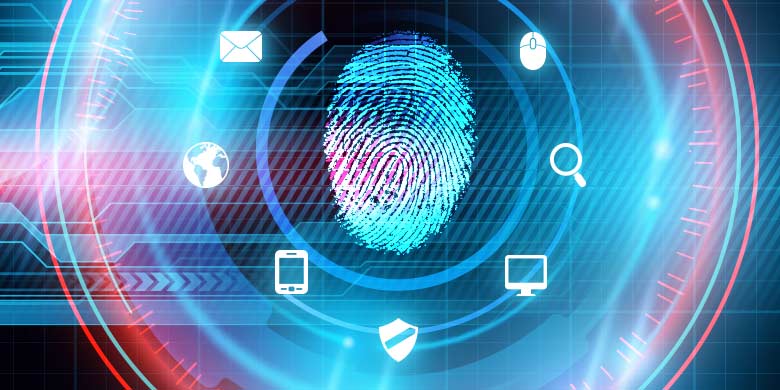Last updated on September 24, 2019
Cyber security risks are everywhere. That’s because electronic data leaves a trail, kind of like fingerprints. Whether you’re shopping online, reading a news article or even logging into your bank account, you’re leaving a series of breadcrumbs about who you are and where you’ve been. You can learn about those breadcrumbs and what they might mean to criminals through the Cyber Security program at DCCCD.
What Does Cyber Security Consist Of?
Cyber security and digital forensics is the study of gathering, preserving and analyzing the data found in computers and other digital devices. With each new digital device that enters our everyday lives, it’s becoming increasingly important to properly train individuals in how to protect personal electronic data and prevent, investigate and solve cyber crimes.
“If a company doesn’t have digital forensics, they’re looking into how they’re going to get digital forensics, or they’re putting a law firm or a big consulting company on retainer to handle their digital forensics,” said Jason Alvarado, lead faculty member of the Cyber Security program at Richland College. “Human resources departments have to use digital forensics just to conduct an employee investigation these days.”
How Much Do Cyber Security Specialists Make?
You can also learn about the average starting salaries for IT positions in the North Texas area through STEM INSIGHT.
The actual job duties for these positions might include things like technical analyses and interpretation of computer-related evidence. This ensures that collection of evidence and chain of custody processes are properly executed. You might also provide advisory services to enhance forensic investigations. “Those people are going to be your in-demand expert witnesses who can testify in court for companies that aren’t hiring digital forensic experts,” Alvarado explained. “They’re hiring an expert witness who happens to know digital forensics.”
How to Get a Cyber Security Degree
At DCCCD, the college that offers the Cyber Security degree program is Richland. You can earn a Cyber Security Associate in Applied Science degree in as little as two years or a Digital Forensic Analyst Advanced Technical Certificate in as few as two semesters. Richland’s degree program also offers areas of emphasis in cyber defense, digital forensics, information assurance, network security administration and system security administration.
Paula Viall, a Cyber Security student at Richland, entered the digital forensics field after the accounting job she had was shipped overseas.
“I did some research and found this is an up-and-coming field. It is wide open, it’s growing here in the U.S., and it’s less likely to be outsourced because you need people on the ground. I’ve enjoyed every minute of it,” she said.
Paula said one of the first things she learned when studying Cyber Security was not to worry about not having the IT background. In fact, sometimes an IT background can hinder students with a mindset of “this is how things are done.”
“We’re not looking necessarily for a technical person,” said Professor Alvarado. “I can make them technical. I can teach them the hard skills that they need, but it’s hard for me to teach somebody to problem-solve creatively.” Creative thinkers and problem solvers can be a great fit for the cyber security field.
More Information About Dallas Community Colleges
- Check out all of our technology and data systems programs on the DCCCD website.
- Meet with your advisor regularly to make sure you stay on track.
- Not so sure about Cyber Security? Consider learning a programming language instead.
